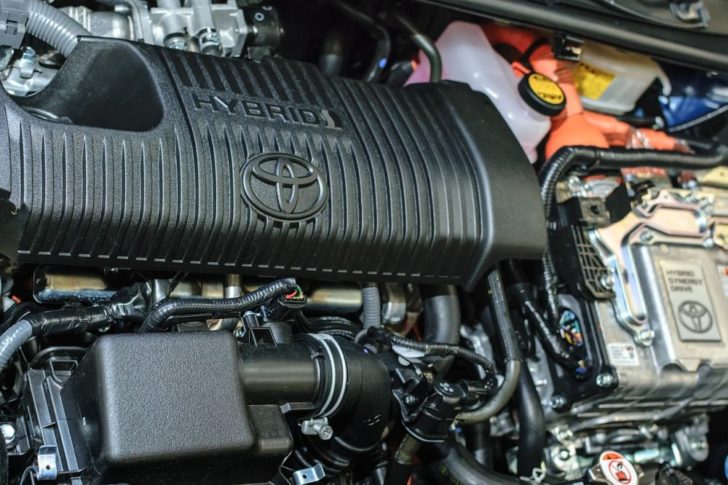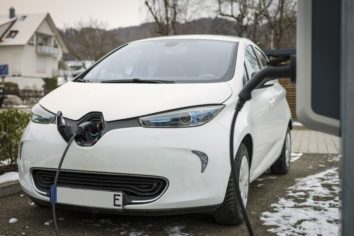Plugin Hybrid SUV – The Best of Both Worlds

Introduction:
A plugin hybrid SUV is the perfect combination of fuel efficiency and versatility. Combining an electric motor with a traditional combustion engine, these vehicles provide an eco-friendly driving experience without compromising on power and performance. In this article, we will delve into the world of plugin hybrid SUVs, exploring their types, popularity, quantitative measurements, differences, historical pros and cons, and key decision factors for car enthusiasts.
1. Overview of Plugin Hybrid SUVs:

– Plugin hybrid SUVs are vehicles that can operate on both electricity and gasoline.
– They offer the convenience of recharging the battery via an external power source.
– These vehicles come with larger battery packs compared to regular hybrids, allowing for longer all-electric driving ranges.
– The combination of an electric motor and a combustion engine results in lower emissions and better fuel efficiency.
2. Types and Popularity:
– There are several types of plugin hybrid SUVs, including compact, midsize, and full-size models.
– Popular plugin hybrid SUVs on the market include the Toyota RAV4 Prime, Ford Escape Plug-In Hybrid, and Mitsubishi Outlander PHEV.
– Compact plugin hybrid SUVs are ideal for city driving and offer impressive fuel economy.
– Midsize plugin hybrid SUVs offer a perfect balance between efficiency and space, making them suitable for families.
– Full-size plugin hybrid SUVs cater to those who prioritize luxury, power, and spaciousness.
3. Quantitative Measurements:
– Range: Plugin hybrid SUVs offer different all-electric ranges, ranging from 20 to over 50 miles, depending on the model.
– Fuel Economy: Plugin hybrid SUVs achieve excellent fuel efficiency, with some models reaching over 100 MPGe (miles per gallon equivalent).
– Charging Time: The charging time for plugin hybrid SUVs varies, but on average, they can be fully charged within 2 to 5 hours using a Level 2 charger.
– Power and Performance: Plugin hybrid SUVs provide ample power, often with instant torque from the electric motor, resulting in quick acceleration.
4. Differences Between Plugin Hybrid SUVs:
– Battery Capacity: Plugin hybrid SUVs have different battery capacities, affecting the all-electric driving range.
– Powertrain Configuration: Some models have a parallel hybrid powertrain, where both the electric motor and combustion engine can work together, while others have a series hybrid powertrain, where the electric motor solely powers the vehicle.
– Electric Motor Placement: Plugin hybrid SUVs may have the electric motor placed in different positions, impacting overall performance and weight distribution.
5. Historical Pros and Cons:
– Pros: Plugin hybrid SUVs offer reduced emissions, lower fuel costs, and the ability to operate in zero-emission zones.
– Cons: They tend to have a higher purchase price compared to conventional SUVs, limited all-electric range, and slightly reduced cargo space due to the battery placement.
6. Key Decision Factors for Car Enthusiasts:
– Price: Car enthusiasts consider the initial purchase price, potential tax incentives, and long-term operating costs.
– Performance: Power, acceleration, and handling are crucial factors for those seeking an exhilarating driving experience.
– All-Electric Range: The range of electric-only driving is essential for consumers prioritizing eco-friendly commuting.
– Interior Space: Families and individuals requiring ample cargo and passenger space will consider the available interior dimensions.
– Technology and Features: Car enthusiasts often look for advanced safety features, infotainment systems, and connectivity options.
Conclusion:
The world of plugin hybrid SUVs offers car enthusiasts the best of both worlds – eco-friendly driving and the versatility of an SUV. With different types, quantitative measurements, and historical pros and cons, consumers can find a plugin hybrid SUV that fits their needs and preferences. By considering key decision factors such as price, performance, all-electric range, and interior space, car enthusiasts can make an informed decision when purchasing a plugin hybrid SUV. Embrace the future of efficient and powerful driving with a plugin hybrid SUV.
FAQ
What is a plugin hybrid SUV?
What are the popular plugin hybrid SUV models?
What are the key decision factors for purchasing a plugin hybrid SUV?
Fler nyheter
Intensivkurs körkort Borås: en guide till snabb och effektiv körkortsutbildning
Introduction: A plugin hybrid SUV is the perfect combination of fuel efficiency and versatility. Combining an electric motor with a traditional combustion engine, these vehicles provide an eco-friendly driving experience without compromising on power...
04 juni 2025
Förmånscykel: en investering för hälsa och ekonomi
Introduction: A plugin hybrid SUV is the perfect combination of fuel efficiency and versatility. Combining an electric motor with a traditional combustion engine, these vehicles provide an eco-friendly driving experience without compromising on power...
02 juni 2025











